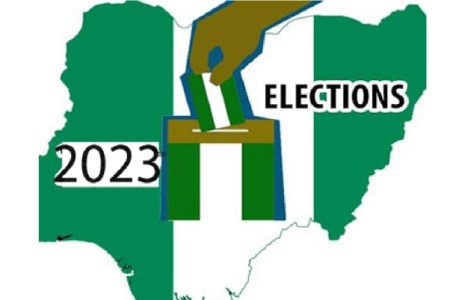By Ali Baba-Inuwa
The June 18 Ekiti state governorship elections, has been adjudged by stakeholders as one of the best in Nigeria in recent times.
The election which was generally peaceful, also witnessed some improvements in terms of organisation and logistics by the Independent National Electoral Commission (INEC).
Some civil society organisations (CSOs), that monitored the poll, described it as a marked improvement, when compared with previous elections in Nigeria.
The Centre for Democracy and Development (CDD), scored INEC high on the conduct of the election.
Prof. Shola Omotola, Member, Centre for Democracy and Development Election Analysis Centre (CDD -EAC) and Professor of Political Science, Federal University, Oye-Ekiti said the election was well organised.
Omotola said that the conduct of the election by INEC was a significant improvement on previous elections.
He said that the general atmosphere of the election was peaceful and INEC officials arrived early for the conduct of the election.
“CDD-EAC observer reports showed that by 8:30 a.m. 64 per cent of polling units visited had opened, and between 8:30 a.m. and 9:30 a.m. another 29 per cent had opened.
“The data indicate that 93 per cent of the polling units in the areas observed had started voting by 9:30 a.m.
“The CDD-EAC data point to a high usage of the BVAS, with 88 per cent of polling units visited reporting effective usage.
“Although there were hitches in very few locations, where our observers noted that some voters could not be accredited, the CDD-EAC observers rated the efficiency of the BVAS as either very good or excellent.”
He added that in all the 31 reported cases where the BVAS malfunctioned, 71 per cent of those cases were resolved within an hour.
“On the average therefore, CDD-EAC data indicated that it took around 2.4 minutes for voters to be processed through the BVAS.
“In 45 per cent of the cases, voters were accredited in two minutes or less, while in 87 per cent of the cases each voter was accredited within four minutes.”
The Nigeria Civil Society Situation Room (Situation Room) also rated INEC high in terms of logistics and commencement of voting in the election.
In an interim report jointly signed by the Convener, Ms Ene Obi; Co-conveners Ms Asma’u Joda and Mr James Ugochukwu, the organisation said it observed early arrival of poll officials and election materials in 93 per cent of the polling units visited.
It however, said that there were many reports of delays and malfunctioning of BVAS machines in polling units especially those with many registered voters.
“Furthermore, INEC distribution of the BVAS devices was not proportionate to the population of registered voters by polling units.
“The Situation Room noted that poll officials gave priority to Persons With Disabilities (PWD) voters, elderly persons and pregnant women in most of the polling units observed,” it said.
Although the election was rated high in terms of logistics and early opening of poll, there were concerns about occasional delays caused by inadequate deployment of Bimodal Voter Accreditation System (BVAS) machines.
For example, the Situation Room in another statement signed by its Co-convener, Mr James Ugochukwu, expressed dissatisfaction with the distribution of the BVAS during the election.
Ugochukwu advised INEC to improve on the distribution of BVAS in proportion to registered voters in polling units.
He commended the functionality of the device during the election, saying the Situation Room observations indicated the BVAS was functional in at least 76 per cent of the voting locations.
“However, there are many reports of delays and malfunctioning BVAS machines in some voting units especially those with many registered voters.
“Examples of the locations where the machines malfunctioned are: PU 002 Igbaletere by mechanic workshop, Ward 6 Ado Okeyinmi, Ado-Ekiti LGA where the machine was going on and off intermittently,” he said.
He said that reports from field observers indicated that it took at least three minutes to accredit a voter using the BVAS in 41 per cent of the locations observed.
“Going by this, the BVAS would have successfully accredited 20 voters per hour on the average in the affected voting locations.
“Consequently, INEC will need to double its effort to improve on the turnaround time of the BVAS of one minute per voter for a seamless process on election day.
“Furthermore, INEC distribution of the BVAS devices was not proportionate to voters population of registered voters by polling unit,” he said.
Ugochukwu also advised INEC to address the problem of over concentration of voters in some polling units.
He cited the situation in Surajudeen School, Ado Dallimore (Ward 9), Ado Ekiti LGA, which had about 5,000 registered voters shared between just two polling units.
Ugochukwu said that some of the voters complained that their request for transfer of registration to their preferred polling units was not approved before the election.
“Several of the polling units were sited in private residences and compounds in Ekiti State contrary to claims by INEC that the Commission had moved polling units to public spaces during its Expansion of Voters Access to Polling Units Exercise in 2021.
“We hope that INEC will properly address this lingering issue going into the 2023 general elections,” he said.
Undoubtedly, the Ekiti State governorship election was an improvement over the November 2021 governorship election in Anambra and the February Federal Capital Territory (FCT) Area Councils poll.
This is in terms of logistics, arrival of poll officials, commencement of voting as well as the functionality of the BVAS machines.
INEC must learn from the successes and failures of the Ekiti State election and further improve in the conduct of the July 16 Osun governorship elections.
It must also use the elections as test run for the 2023 general elections.
NANFeatures



